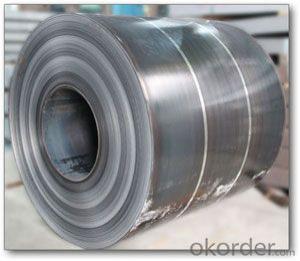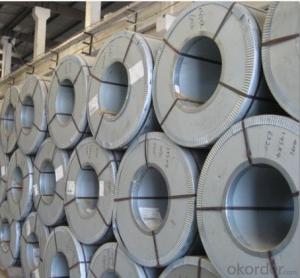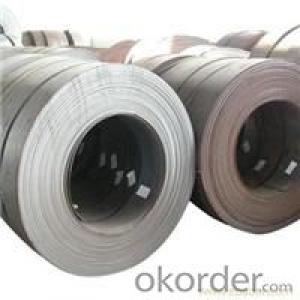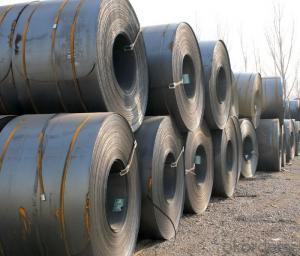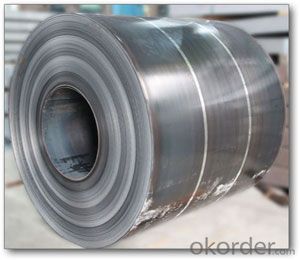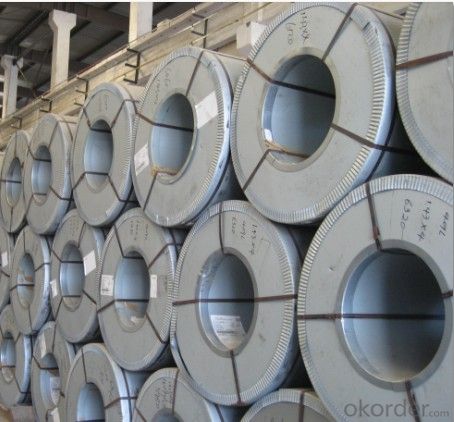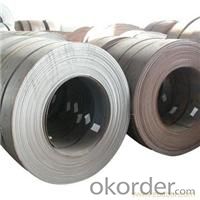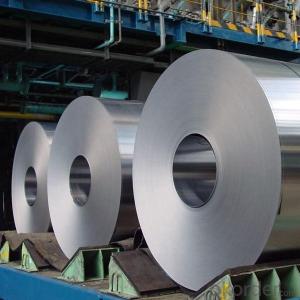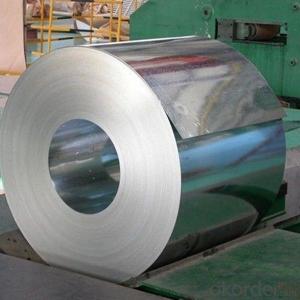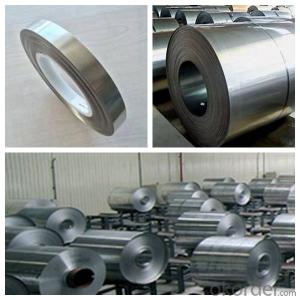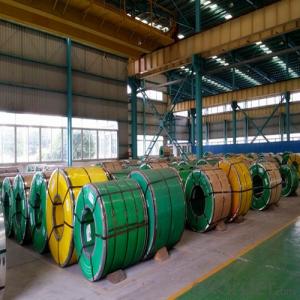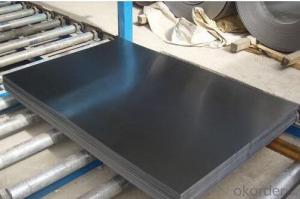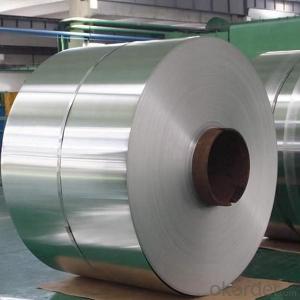HOT-ROLLED STEEL COIL WITH HIGH QUALITY NO.1
- Loading Port:
- Tianjin
- Payment Terms:
- TT OR LC
- Min Order Qty:
- 100 m.t.
- Supply Capability:
- 9000 m.t./month
OKorder Service Pledge
OKorder Financial Service
You Might Also Like
HOT-ROLLED STEEL COIL
Hot rolled low hardness, easy processing, good ductility.
Available specification:
thickness | width(mm) | length(mm) | coil inside diameter(mm) | |
HOT ROLLED STEEL COIL | 1.5-25 | 600-2000 | 762 | |
HOT ROLLED STEEL STRIP | 1.5-20 | 30-720 | 762 | |
HOT ROLLED STEEL PLATE | 6-700 | 500-4500 | 4000-18000 | |
HOT ROLLED STEELSHEET | 1.2-25 | 50-2000 | 0-18000 |
We can supply customers' with different specifications of the highest quality and lowest price.
Sincerely welcome to contact us for the future details if any item interest you ,and we will make every effort to assure that your requirements will be satisfied ,and we hope to establish long-term business relations with you on the basis of the equality and mutual benefit.
We are waiting for your email.
- Q: what is the differance between ceramic and stainless steel headers and 4-2-1 and 4-1 and which are better for racing and should i get ceramic or stainless steel headers???? for a 98 civic
- This Site Might Help You. RE: ceramic vs stainless steel headers HELP!!!!!!!!!!!!!! for a 98 civic? what is the differance between ceramic and stainless steel headers and 4-2-1 and 4-1 and which are better for racing and should i get ceramic or stainless steel headers?? for a 98 civic
- Q: How do steel coils contribute to the construction sector?
- Steel coils contribute to the construction sector in several ways. Firstly, they are used to manufacture structural components such as beams, columns, and steel frames, which provide strength and support to buildings and infrastructure. Secondly, steel coils are used to produce reinforcement bars that are embedded in concrete, enhancing its tensile strength and durability. Additionally, steel coils are utilized in the construction of bridges, pipelines, and other large-scale projects that require robust and long-lasting materials. Overall, steel coils play a vital role in the construction sector by providing the necessary materials for sturdy and resilient structures.
- Q: So finally got around to watching man of steelnow i heard a few times that batman was in iti didn't se him.in the film is it something subtle I've just missed or is he not in it?when i googled it got loads of results for them being together in the new film but nothing about man of steel 2013
- Batman himself is not in Man of Steel; he is in the upcoming sequel to Man of Steel though, titled Batman v Superman: Dawn of Justice There are subtle references to Batman in Man of Steel though. When Superman and Zod are fighting and they fly up above the Earth, the satellite they fight next to has the Wayne Enterprises logo on it (Wayne Enterprises is the name of the company owned by Bruce Wayne AKA Batman). Also (and this one is very hard to spot) there is a part where Zod throws Superman into an office building, and just for a split second you can see a poster on the wall which says Keep Calm and Call Batman So no, Batman is not in Man of Steel, although he is in the sequel and he is referenced in Man of Steel.
- Q: How are steel coils labeled and identified?
- Steel coils are typically labeled and identified using various methods such as tags, stickers, or printed markings. These labels usually contain important information including the coil's dimensions, weight, grade, manufacturer, and any specific customer requirements. Additionally, unique identification numbers or barcodes may be used for easy tracking and inventory management.
- Q: How do steel coils contribute to the marine industry?
- Steel coils are a crucial component in the marine industry as they have various applications that contribute to the development, maintenance, and efficiency of marine vessels. Firstly, steel coils are used in the construction of ships and offshore platforms. Their high strength and durability make them ideal for the hull structure, ensuring the integrity and safety of the vessel, even in harsh marine environments. Additionally, steel coils are utilized in the fabrication of various marine equipment and components. For instance, they are used to manufacture propellers, shafts, and rudders, which are essential for steering and propelling ships. The use of steel coils in these parts ensures their resilience against the corrosive effects of seawater, thus increasing their lifespan and reducing maintenance costs. Moreover, steel coils are employed in the production of marine pipelines and oil rig infrastructure. These coils are transformed into pipes and tubes that are used in the transportation of oil, gas, and other fluids. The strength and corrosion resistance of steel coils are vital in ensuring the reliability and safety of these pipelines, as they need to withstand extreme pressure and exposure to saltwater. Steel coils also play a role in the marine industry's maintenance and repair processes. When a ship undergoes renovations or repairs, steel coils are often used to replace damaged or corroded sections of the vessel. The versatility of steel coils allows them to be molded and welded into various shapes and sizes, making them suitable for different repair applications. Overall, steel coils contribute significantly to the marine industry by providing the necessary strength, durability, and corrosion resistance for the construction, maintenance, and efficiency of marine vessels. Their applications in shipbuilding, component fabrication, pipeline construction, and repair processes make them indispensable to the development and sustainability of the marine industry.
- Q: What is the maximum load capacity for steel coil storage racks?
- The maximum load capacity for steel coil storage racks can vary depending on various factors such as the design, dimensions, and specifications of the rack. It is recommended to consult the manufacturer or supplier for the specific load capacity of the steel coil storage rack you are using.
- Q: Got small (.177) bb gun for fun with my son...From the manual:'Steel shot will fire at a higher velocity then lead shot with with the same muzzle energy. As a result, more caution is required when using steel shot because of a greater hazard of ricochet. Lead, because of its lower velocity, usually has less penetrating power and is less likely to ricochet.'Are you agree with that? ;)
- steel is made of iron mainly (and carbon) its density is 7.86 g/cm? approximately. and lead has density=11.4 g/cm?. so, if have same volume and shape steel will have less mass and thus will have greater velocity for same muzzle energy. I agree the manual. for more information on ricochet
- Q: How do steel coils contribute to the oil and gas industry?
- Steel coils are an essential component in the oil and gas industry as they are used to manufacture various equipment and structures like pipelines, storage tanks, and drilling rigs. These coils provide the necessary strength, durability, and resistance to corrosion required for the harsh operating conditions in the industry. Additionally, steel coils are crucial in the transportation of oil and gas as they are used in the construction of tankers and pipelines, ensuring the safe and efficient movement of these valuable resources.
- Q: Hello. right now i have been playing electric and acoustic guitar for 6 years. I currently became very interested in learning the pedal steel guitar. I will be teaching myself so is it really hard to learn? Are there a lot of songs online that could give me tabs? Basically im asking if it is worthwhile to spend a lot of money. I dont want it if there are only 3 songs im gona learn. im up for the challenge im just curious how hard it was to learn. thanks for your help.
- The okorder /... Beware of eBay deals unless you know what you're buying. To start, you should get a 10-string single neck with 3 pedals and 4 levers. Some of the student models don't have as many levers and aren't capable of all the changes you need. Stay away from the ShoBud Maverick...you'll outgrow it in a couple of months. Often it makes more sense to buy a used professional model...you'll eventually need one, and they hold their value better than a student model. You'll also need a volume pedal, bar, thumb and finger picks. For now, your guitar amp will be ok. Playing the guitar: There are several tunings and lots of different combinations of levers, but the basic guitar is a 10 string E9 tuning. It's almost an open E but with a few extra notes. The pedals and levers raise and lower the pitch of selected strings. Chord changes are made by moving the bar and pressing pedals and levers. The volume pedal helps you swell and sustain notes. Steel has it's own unique tablature which reflects all these changes. If you have any other questions, feel free to email me or just join the PSG forum and ask there.
- Q: How are steel coils used in the manufacturing of suspension systems?
- Steel coils are commonly used in the manufacturing of suspension systems as they provide the necessary support and flexibility to absorb shocks and vibrations. These coils are typically shaped into springs and placed in the suspension system of vehicles, helping to maintain stability, improve handling, and ensure a smooth ride by absorbing the impact from uneven surfaces on the road.
Send your message to us
HOT-ROLLED STEEL COIL WITH HIGH QUALITY NO.1
- Loading Port:
- Tianjin
- Payment Terms:
- TT OR LC
- Min Order Qty:
- 100 m.t.
- Supply Capability:
- 9000 m.t./month
OKorder Service Pledge
OKorder Financial Service
Similar products
Hot products
Hot Searches
Related keywords
